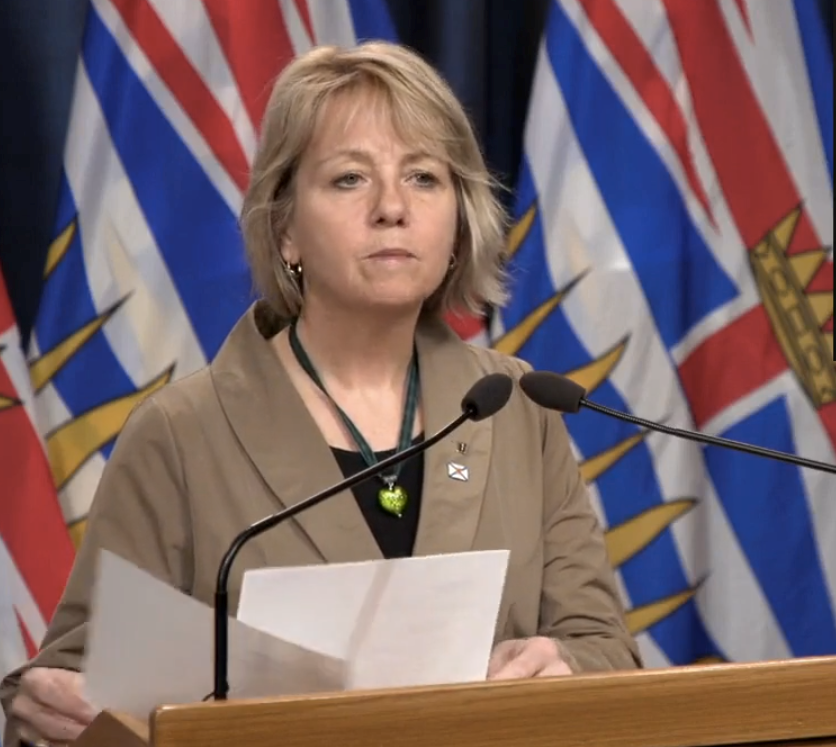Information from seniors and staff at Lynn Valley Care Centre who have recovered from COVID-19 will hopefully be used by medical researchers to lead to more widespread population testing for the virus.
Dr. Bonnie Henry, the province’s chief health officer, said Wednesday that medical information from those who have recovered from the virus will be important in validating serology tests for COVID-19 antibodies.
Those tests will be important in showing health officials how much of the population may have already been exposed to the virus and developed some immunity to it – possibly without knowing they’ve even been infected. That is one of the pieces of information health officials likely will be looking at before lifting some restrictions on regular life in B.C.
“We are working with the Lynn Valley Care Centre, with people who have survived infection there and asking them to help in validating this test,” said Henry.
Henry made the comments Wednesday in response to recent questions that have emerged from a study in California that appeared to show much higher numbers of people there had already been infected with the virus than previously thought – including many milder cases.
But Henry warned Wednesday that there have been problems with the California study that have so far proved red flags in putting too much faith in the results.
Among those are very small sample sizes that were likely skewed by how participants were selected, said Henry. She said the test used in the California study has also not been adequately validated, resulting in high false positive rates.
Henry also pointed to the example of the United Kingdom, which recently bought 3.5 million serology tests and later discovered they could not rely on the results.
Before such a test is put to more widespread use in B.C., “we want to know how the test works,” said Henry.
The answer to that is likely at least 10 days away, she said.
B.C. researchers are part of a national consortium working on how the results of such a test can later be used to inform future decisions, she said.
In a similar vein, Henry also spoke more Wednesday on how health officials decide someone who has had the virus has recovered.
At the beginning of the pandemic, doctors required two tests before a person was declared recovered. Health officials are still using that method for people who are hospitalized, but more recently – especially in long-term care facilities like Lynn Valley – those who have had the virus are considered recovered when 10 days have passed since the first onset of their symptoms.
Some families of care home residents have questioned that.
Henry said researchers around the world have learned that while some people can shed the virus for longer, the virus they shed is not live after 10 days and can’t infect other people.
Beyond 10 days “we now know it’s very unlikely they will shed virus that will infect others,” she said.



